For those who have been paying attention to the latest news in the technology space, you will most certainly have noticed that OpenAI recently launched ChatGPT, a new artificial intelligence (AI) chatbot. It is amazing to see how this technology works and how quickly it can do incredibly complex tasks and have virtually all the information that is online at your disposal in a matter of seconds. I had to test it multiple times and try to force it to make a mistake on the information that I wanted, but this machine learning technology is really powerful.
For example, I asked it to write me a song around a specific theme and asked for the chords I liked best, and in less than 10 seconds, I had a song that I could easily play on the guitar. I even asked it to write this article quoting articles and giving examples of application of AI in medicine, and the result was quite complete, but naturally as the applications of AI in dentistry are still few and of little relevance, naturally there was little information it could combine and use in an intelligent way. As such, the result was somewhat interesting, but not what I was looking for. That is not to say that in a year or two when the bot can obtain more information online, and there are more cases and documentation, the technology will not be able to be even better.
If ChatGPT is asked things for which a great deal of information is already available, the responses are simply amazing, and the scary thing is that the bot is still learning. It learns with every question and with every answer. It is going to revolutionise the way we search for information and the way we learn, and certainly many jobs are at risk with this technology. As a rule, I am not a person who is afraid of technologies, but if we look at the automobile industry, which used to rely almost entirely on people, all tasks are now mainly done using robots. The work of cashiers at the supermarket can also already be 100% automated. There are already platforms for lawyers and legal articles written by AI programs and translated almost instantly. It is all quite impressive.
Our dental business has three main components:
- diagnosis and treatment plan;
- execution of treatment; and
- daily management of the clinic.
Of course, I am simplifying here. We all know that it is far more detailed and that there are many more factors at play than these, but I think that these are the main areas in the day-to-day running of a modern dental practice. Where might AI have an immediate impact on these specific areas?
Diagnosis and treatment plan
There are already several online platforms available to help in diagnosis. Of course, they are not perfect, but they are already able to very quickly through a panoramic radiograph or CBCT scan segment all the teeth and identify problems such as caries, endodontics and missing teeth. Some of these platforms also assist the dentist incredibly quickly in preparing a treatment plan beyond diagnosis. We are still in the early days of this technology, but I believe that within a very short time the application of AI in the diagnosis and treatment planning of our patients will be the norm, and for those who work for insurance or large dental groups, it will almost be a requirement.
The advantages implicit in this technology are that we can often miss small details because we might be looking at more complex problems in our patients’ mouths and for example miss a small cavity between two teeth or because we do not have the requisite amount of time in our initial appointment to look at everything or are focused on the primary reason the patient came to us and might overlook broader aspects. This technology will help mitigate error incredibly in this very important process, when we are diagnosing a patient for the first time or re-evaluating our case after a few years. We all know that our eyes can sometimes deceive us. Here this technology will play an incredibly powerful role in helping to analyse CBCT scans and radiographs, and I believe that intra-oral scanners and laboratory scanners will also be a part of this process, as well as the various software programs available for the dental laboratory.
AI will also play a predominant role in the preparation of a treatment plan, as well as in the sequence of treatments to be performed, making sure that the right methods are in place. Depending on the technology used, the software will serve the clinic or the patient. Different groups may create AI programs according to their various goals, such the promotion of biomimetics or all-on-four or aesthetic treatment. This means that programs are going to be trained to prompt a specific outcome by whoever programmed them. AI software does only what it is programmed to do, so whoever creates these AI programs can set whatever parameters they want.
“AI will provide an incredible means to improve the effectiveness of diagnoses and treatment plans, making the process much safer for everyone involved.”
Imagine an AI program available to the patient through which the patient could influence the dentist’s treatment plan and the materials used. The second the dentist presents the treatment plan based on his or her diagnosis, the patient would be able to ask for that report and enter it into the program on his or her smartphone and instantly critically analyse whether the dentist’s goal is financial only rather than the pursuit of optimal treatment. This program might enable instant recommendations from nearby clinics that can perform the same type of treatment at a lower cost and with greater proficiency because they have better means and materials to do so. It appears that soon all this information will be available to everyone, not just dentists.
That is why I have been warning for some time in my lectures and at international conferences that this is a very good time to start investing in quality and to be as ethical as possible in our professional conduct, because sooner or later there will be technological entities controlling the way we work. It is going to be very difficult to deceive your patients, and we all know that there are many today who practise dentistry that is not congruent with current science and clinical evidence in order to save time or money. It will certainly be very interesting to see the evolution of all these technologies in our industry.
Personally, I think that this is great! Since the beginning of my career, I have been putting myself on the side of the patient and not on the side of the industry. I practise empathy every day when I have a patient in front of me. I am sure that every patient in the world wants the same thing: good treatment performed with the best materials, painlessly and with care and that lasts a lifetime with high aesthetics. Of course, this magic formula does not exist, but surely the incredible tension that exists between patients and the industry will dissipate if we have a technological referee in our midst.
We all know that there are patients with unrealistic expectations who have a very complicated phenotype and want complex mouth treatments that are unachievable. An AI program will be able to immediately mediate in the conversation by introducing an objective examination so that the dentist can have more tools to demonstrate the facts of the case based on science and to support a challenging explanation to the patient and, by the same token, so that the patient will have extra support to ensure that he or she is not being misled and that the dentist is not trying to sell something outside of the necessary scope, in defence of the patient’s oral health and wallet. I think that it will be an incredible help to many.
Of course, clinics that practise dentistry without regard to quality and ethics should be very concerned about these new technologies. I think that this mediation is something that is missing in our industry. I have already been working with companies and been helping some of them, learning from them and trying to ensure that decision-making and implementation are based only on ethics, science and clinical evidence.
To summarise, I think that AI will provide an incredible means to improve the effectiveness of diagnoses and treatment plans, making the process much safer for everyone involved, and to ensure that no step is forgotten in developing a treatment plan and that the sequencing of treatment steps is done according to the principles of biology and mechanics, based on a deep understanding of what is possible and tangible, in order to achieve longevity and success for the dentist and of course the patient.
Just like we have been doing with clear aligner treatment for over 18 years, this whole process has to be validated by a human, the dentist—who of course is sovereign at the end of the day! If he or she changes the treatment plan, however, the AI program will inform the patient of this change immediately, giving the patient the opportunity to ask why. If things go wrong in the future, AI programs will certainly give patients the means to engage with their dentists. This will have legal implications, and I believe will make life more difficult for some but easier for others.
Execution of treatment
I believe that this will be an area explored more by robotics than by AI. There are already robots that can place dental implants remotely with incredible precision, and naturally they will be controlled by AI in the future. For now, we can be assured that, at least for the next few years, the art of taking care of our patients’ mouths will still be very manual, and here dentists play a leading role. I believe that, if we are smart and use the time saved in creating the treatment plans and diagnoses by AI, we can use that time to invest more time in our patients. Certainly, there will be clinics that will quickly fill those hours with more patients, but as you know I am a strong advocate of Slow Dentistry (slowdentistry.com), and I believe this is how we will secure our future. The human touch is going to be the major differentiator. I believe that we have to focus on the human side of our art because in the future the dentists who create the best relationships with their patients will be more successful.
Patients will surely want to be sure that their dentist is doing things right, and we all know that working in a hurry is very difficult. There are more and more young dentists in the business. Experience takes years to acquire, and it is imperative to give young people adequate time to be able to do their jobs well. I even believe that there will be an AI program that will be able to measure what the optimal time is for performing each task with quality and that will inform the patient that the average optimal time for a Class I restoration on a molar is 35 minutes, for example, and that fitting a dental dam for treatment is essential.
Regarding the execution of treatment, I think that AI will play a very relevant role in the selection of materials and technologies to use. Here it is easy to understand how. When the AI program compiles the treatment plan, it will be able to analyse all materials available quickly and determine the best material for each step in the treatment to be executed, helping the dentist to select the materials more carefully for his or her treatment. This will also help laboratories avoid materials not congruent with the long-term success of the treatment being performed. Each time, the dentist or dental technician does not accept the recommendation provided by the AI, the patient will be warned.
“I believe that AI will play a major role in supporting the day-to-day management of our clinics.”
Consider blockchain technology, a digital ledger in which transactions made in a cryptocurrency are recorded chronologically and publicly. This data is distributed across a network of computers and cannot be changed without verification and approval via time-stamp. This means that the security of these assets does not rely on a third party, heralding a significant decentralisation of power over information.
All the information that we acquire from our patients, for example via radiographs, intra-oral scans, CBCT scans and photographs, belongs to the patient. I believe that every time that information is shared with entities outside the clinic, the patient will be notified via an AI program. Imagine, for the groups that send crowns to be manufactured in China or India or anywhere for that matter, the patient will be notified that his or her file has been sent abroad. Of course, this is no problem at all if the dentist has informed his or her patient that he or she will be doing this to lower costs, but it will be difficult to explain this to the patient if he or she has been given a guarantee that the crown will be manufactured in Portugal, for example. This demonstrates that ethical care will be facilitated by default in the dental industry and in the health business in general in the future, thanks to AI and the associated technologies.
Daily management of the clinic
We all know the difficulties we have managing in complex schedules. I believe that AI will play a major role in supporting the day-to-day management of our clinics. The following are some areas where I believe that AI will very quickly be of great use to us:
- stock management;
- calculation of dental professionals’ commissions;
- invoicing;
- legal documentation for patients;
- patient conflict management; and
- improving communication between departments.
Nowadays, all these tasks require endless hours of human resources day in and day out throughout the year, at great cost to clinic owners. Yet it is difficult to include redundancies in these tasks, and there are many possibilities for error. All these errors come at a great cost as well. Surely, it will be incredibly welcome for practice owners, insurers and all those involved in managing practices to have support that can enable them to reduce error and increase efficiency.
Let us consider an example. Imagine a healthcare group that has one dentist. This dentist works in three different clinics and, at the end of the month, is remunerated based on a calculation of the treatment activities performed. It is necessary for an accountant or an account manager to confirm all the facts described and entered into the system by the dentist. Now, the healthcare group must confirm that the dentist has indeed performed these tasks, but how can it know whether he or she has done them well? How can it be sure that he or she has not made a mistake? An AI program used by the clinic management could very quickly go through the radiographs, the photographs, the clinic’s and dentist’s emails, all communication between the parties involved, the stock record for the materials removed from the stock for the treatment, the chair time allocated for the treatment and the laboratory workflow around the treatment and calculate immediately whether in fact what the dentist claims to have done was in fact done and done well. Naturally, the dentist will feel more secure because his or her entire effort will be validated and confirmed by management, and his or her payment will be effected without problems.
The problem arises if the dentist has not been correct in his or her conduct, because the AI program will quickly warn both parties of an error and help correct it to the benefit of both parties. Surely no dentist will want to be paid for work he or she did not do, and no organisation will want to pay for work not done. Certainly in the future there will be a discussion about whether organisations should pay for poorly performed work, but that is another discussion for another time.
I think that AI may make things more difficult for some but also much easier for others. We are still a long way from seeing all this happening, so do not become worried just yet. It is important, however, to keep an eye on how things are developing because it is not a matter of whether it will happen but when.
*Originally published in Dental Tribune.


